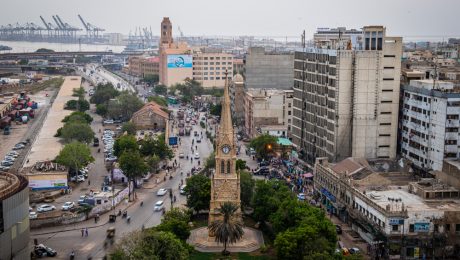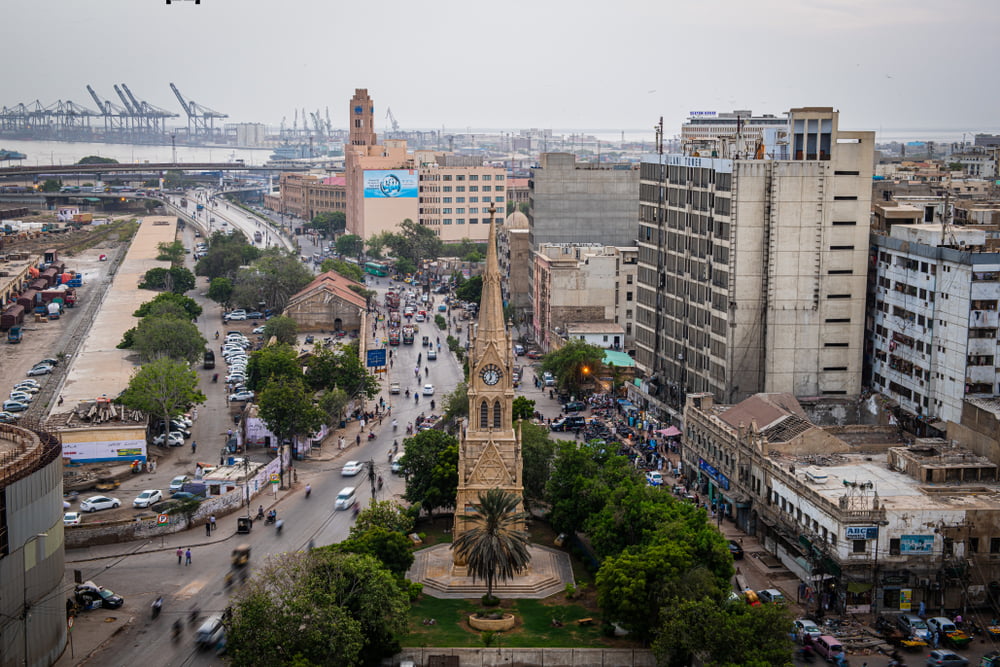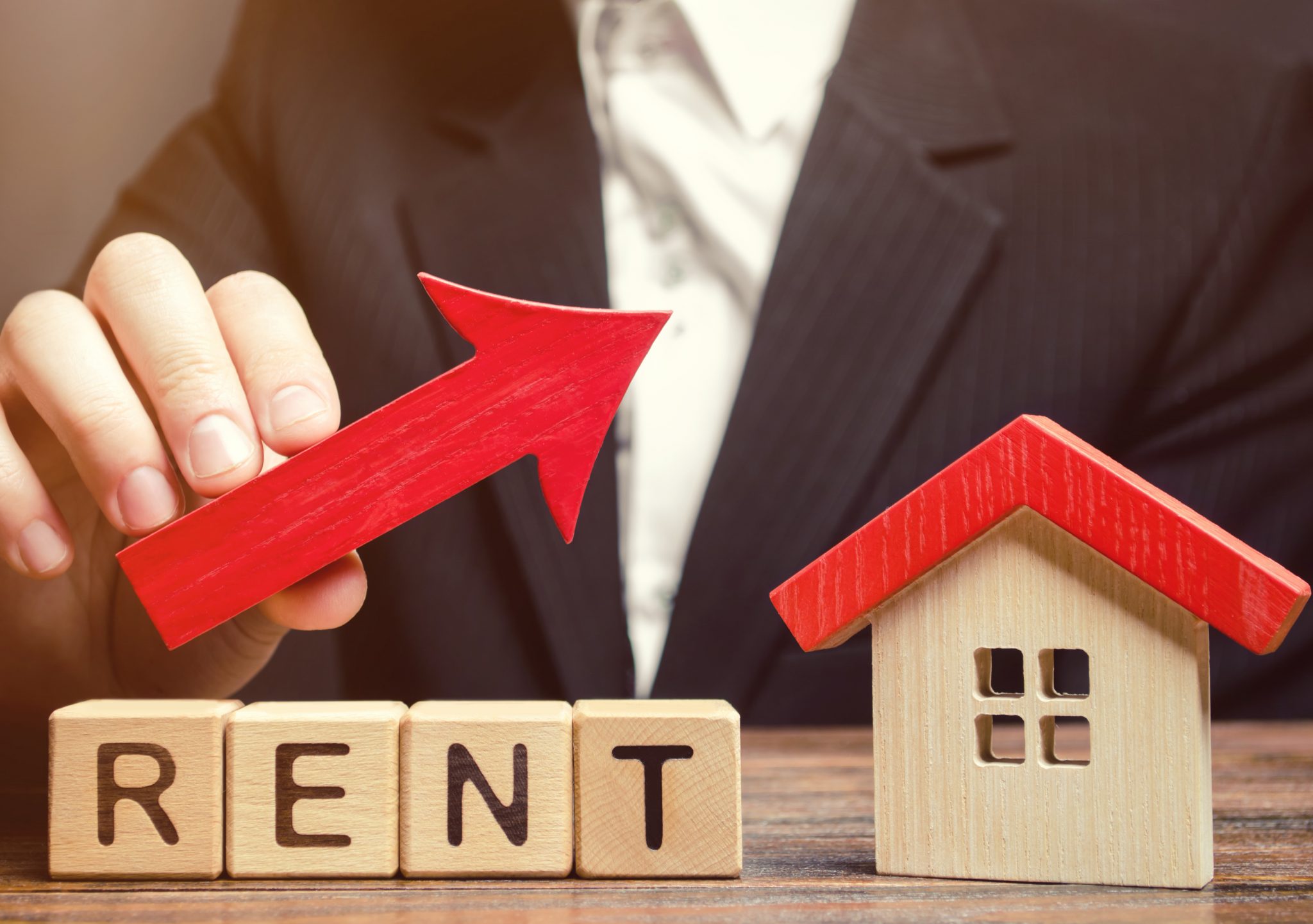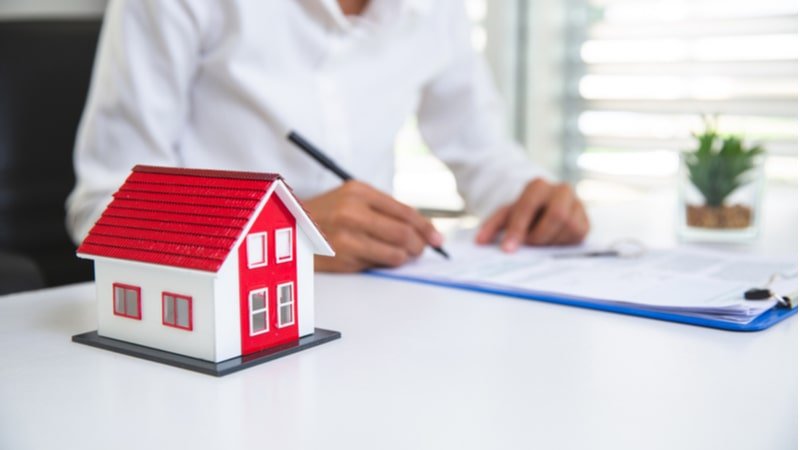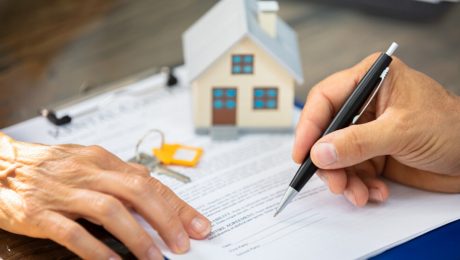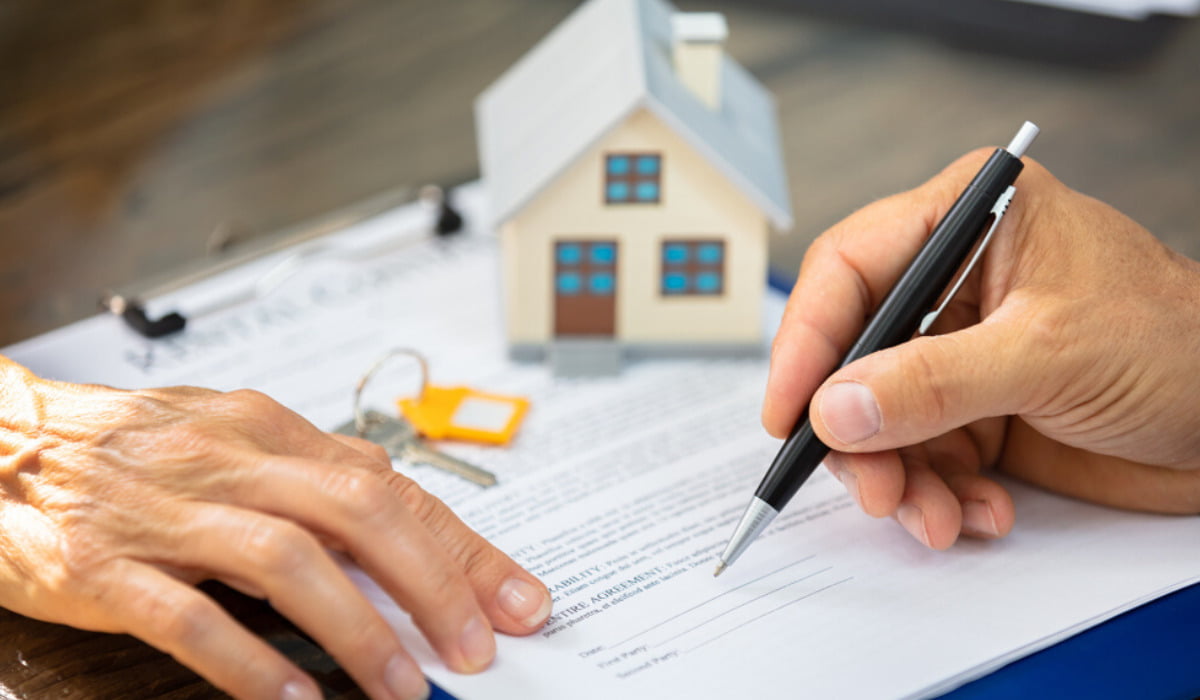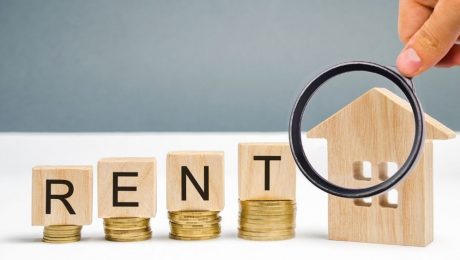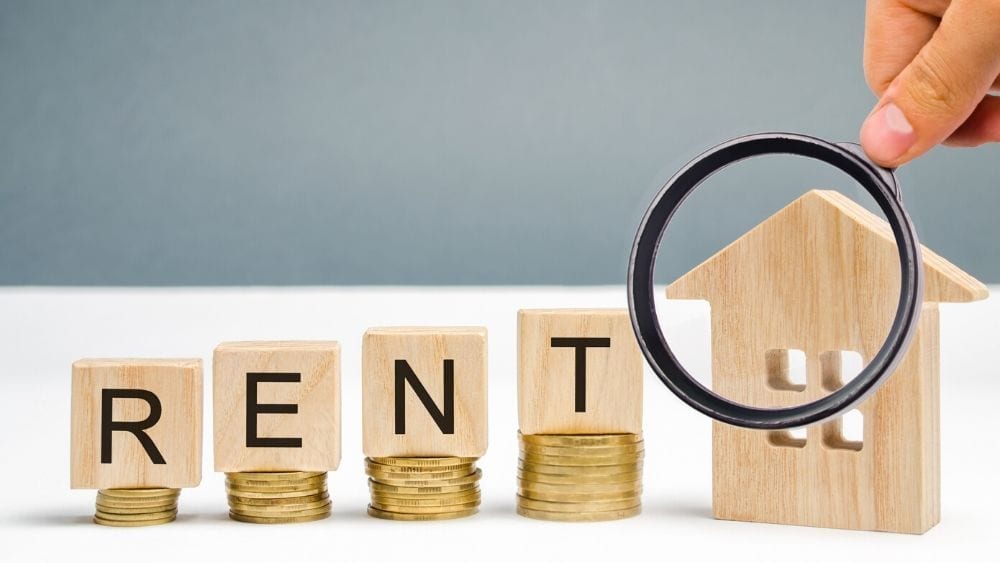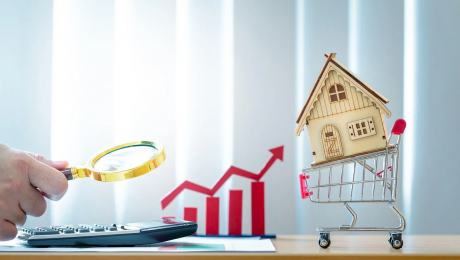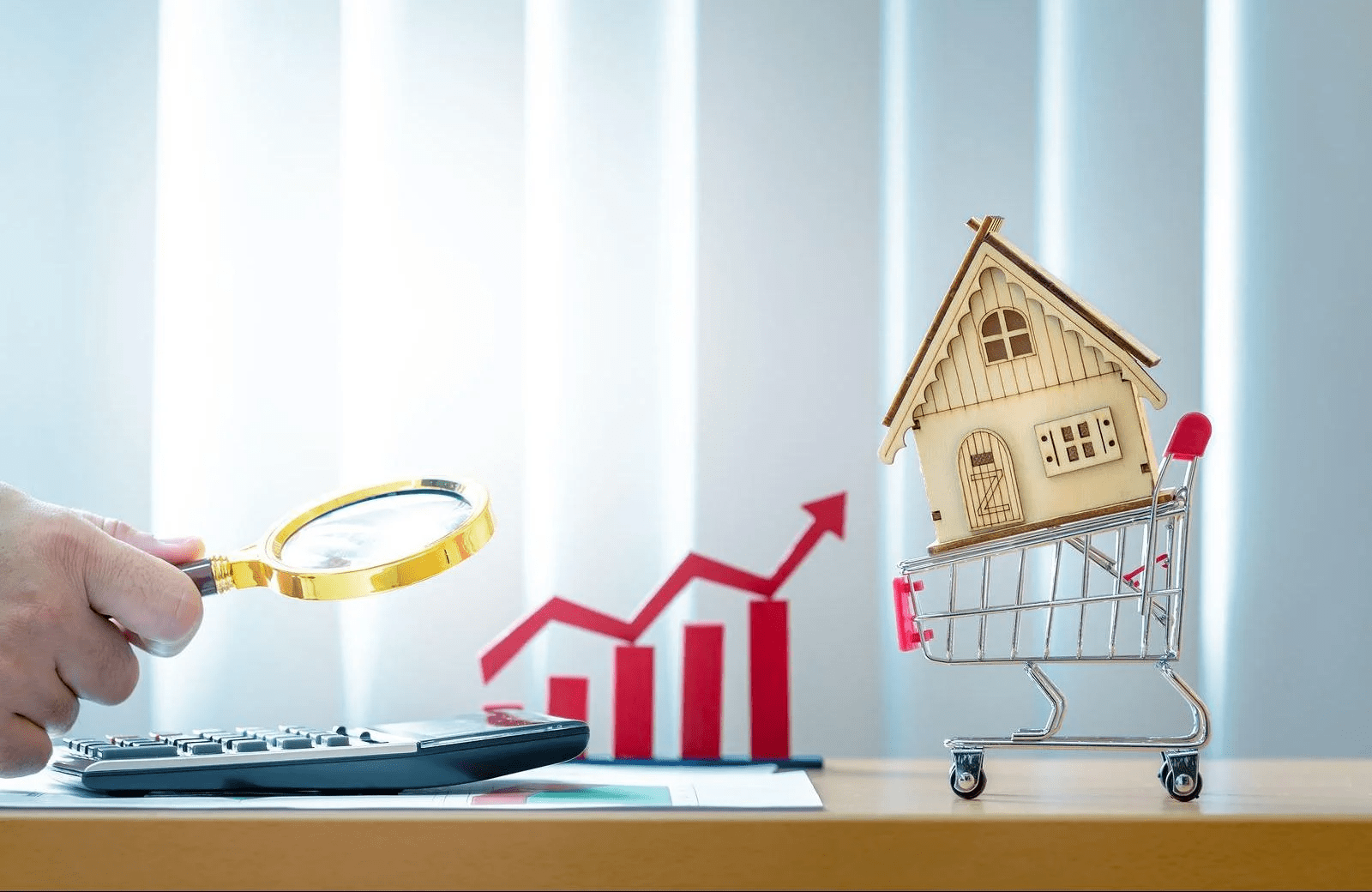The Agents Real Estate Guide for Karachi
In Real Estate Guide for Karachi, Karachi’s real estate sector provides services to nearly 20 million individuals. From dozens of residential properties to thousands of squatter colonies, the size and complexity of this city captivate everyone. Property values are rising in practically every popular neighborhood.
In the latest days, the city has seen the development of multiple real estate developments in various parts of Karachi, especially in the outskirts, causing its real estate industry to expand on an unprecedented scale. These quickly developing property projects provide people with numerous residential and commercial plots, resulting in new real estate investment options.
What Should You Know About Property Investment in Karachi?
Purchasing a home or property in Karachi can be an exciting experience for people. But, being a landlord in Karachi is not as simple as it sounds. First and foremost, you must conduct a property price survey to determine which types of property in Karachi are in high demand and expanding in value.
Karachi is a sprawling metropolis with numerous districts and localities. As a result, considering property investment in Karachi is akin to capturing a small fish in a vast ocean. Simply put the search query ‘Property for Sale in Karachi‘ yields hundreds of responses with varying price tags.
Projects offered solely through the internet or Text, with no authorization from a trustworthy agency, should be viewed with caution. So, if you cannot validate their legitimacy or any other information they offer, it is best not to deposit any money in such a case. It is one of the most significant real estate investment ideas that Karachi property investors should follow.
If you search for a business or a domestic property, having close facilities and a protected place can only increase the property’s value. When looking for a particular house for sale in Karachi, you must consider all of these things. Under development, housing projects inside the city have higher profit possibilities than fully built societies in Karachi’s outskirts.
The Fundamentals of Property Investing in Pakistan:
It will help if you are mindful that there is no one-size-fits-all approach to defining real estate investment adequately. Yet, we may say that selling, buying, or leasing property for the sake of capital gains is essentially a property investment. Here are some property investments that are most useful in Pakistan’s real estate market:
Buying and Reselling Plots:
Buying plots at cheaper costs to sell them at increased prices is among Pakistan’s most prevalent real estate investing techniques. In this business, investors buy lands and retain them till their prices rise. This rise is subject to the passage of time and the progress of the project in question.
Buying a Property to Rent Out:
Whether it’s a flat, a house, or a business building, buying and renting out a place is a profit real estate investment. Now, all you can do is sit back and enjoy a steady monthly income while your property worth rises day by day.
Attempting to Sell Your Property:
It is the phase at which you begin to see a return on your investment. When you believe your property has reached its maximum value potential, it is time to sell it. If your desire is to get the most out of your investment, bear in mind the listed considerations.
- Make use of a variety of resources
- Analyze the value of your item
- Analyze the value of your item
- Reconfirm allotment
- Cash transactions must be rescinded
Conclusion:
Yes, after you’ve looked over all of the suggestions mentioned earlier, you should do this. If it meets your requirements and budget, purchasing a plot in Karachi can be a fascinating experience. Before closing on a contract, as an investor, double-check everything regarding the property you’re interested in.
Stay tuned to Feeta Blog to learn more about Property investment in Pakistan.
The Agents Real Estate Guide for Karachi
Tips For Investing In Gwadar Property
For Investing In Gwadar Property, Gwadar is located on the southwestern coast of Baluchistan. It is a port city located on the shores of the Arabian Sea opposite Oman.
Gwadar has been developing its infrastructure at a rapid pace. It is known to be a pivot of China Pakistan Economic Corridor. The investment influx in Gwadar is unprecedented. Experts have marked Gwadar as a game-changer for Pakistan’s real estate.
Investing In Gwadar:
When investing in any business project, one should do a background check and be aware of the pros and cons of the investment. For a profitable investment, one should do research beforehand. In real estate, one should search the area before investing. Some profitable areas for investing in Gwadar are the Sangar Highway scheme, New World City, GDA Housing Scheme, New Town Housing Scheme, and Gwadar Industrial Estate.
Tips for Investing in Gawadar:
The investment area’s prominent features should consist of amenities including green areas, hospitals, education facilities, parks, entertainment facilities, fuel stations, and transport facilities.
One should invest in an area that is up and coming as it allows one to be part of the development before the prices rise. The idea goes well for Gawadar as it’s an up-and-coming project, and investment in its property will be profitable.
Gwadar has a location that is planned to be used strategically for trading purposes of the country. Gwadar is to become such that all exports and imports will pass through its deep-water port. The imports will be from China, and exports will be to and from Africa, the Arabian Gulf states, the Middle East, and Europe. There will be a facility of a floating liquefied natural gas facility built as part of the $ 2.5 billion Iran-Pakistan gas pipeline project.
Demand For Property:
The demand for property in Gwadar has been rising, and the indicator of it is the construction carried out in the special economic zones of the city. The inspiration for Gwadar has been taken from Shenzen. Shenzen is a zone of China. Before its development, Shenzen had a population of 30,000 and today consists of between 13 to 20 million.
If a fraction of what happened with Shenzen takes place in Gwadar, the demand for real Estate in Gwadar will skyrocket. The statistics show that in 2014 Gwadar consisted of a population of 85000 inhabitants, and its current population is estimated to be 250,000.
Documentation Of Property:
Scams have been common in all parts of a business; one should be cautious when investing. CPIC helps with providing all required documents on time after the completion of the purchase. Faulty or non-existent paperwork may be provided as original to scam the investors. To ensure that the documents are original, CPIC comes in handy.
Budget:
Real estate requires making the right choices as an investor. It requires knowing one budget; how much an individual needs to spend, including extras and not just the purchase. The extra pay may include legal fees, tax fees, and other payments. The best idea is to keep extra cash on hand for expenses one may not have calculated or even thought of.
Once details are collected, one can get an idea of how much one can afford. One method to make a purchase at the best price is by being assisted by consultants and being transparent about one’s budget and costs throughout.
Reliable Construction:
The first step of investing in Gwadar would be buying a plot of land. The next step is to actually start the construction of a home on the plot of land bought. The reliable move would be to hire tradesmen who can get done with the construction on time at a reasonable price.
Make A Flexible Investment:
Investing in land is a secure asset and won’t wear out, or get broken, stolen, or destroyed. A finite amount of land is available in Gwadar, and prices are rising per investment; invest in land to rent out or to use yourself.
For the latest updates, please stay connected to Feeta Blog – the top property blog in Pakistan.
Tips For Investing In Gwadar Property
- Published in Investing In Best Deals, Investment, investment property, Investment Tips, Investments, News & Updates, property, Property In Pakistan, Property News, Real Estate, real estate business, real estate financing, Real Estate Guide, real estate investing, real estate investment, real estate market, Real Estate News
FAQ on Rental properties in Pakistan / Passive income in real estate
Frequently Asked Questions – Pakistani Rental Properties / Passive Income
Earning a passive income from Rental properties in Pakistan is by far the safest and surest way to get rich. This FAQ will answer some of the basic questions you may have in mind.
Q-1 Rental properties are depreciating and therefore do not offer high yields.
Answer- The problem of depreciation only exists in houses, especially since they offer only 3 to 4% rental yield per year. Advertisements and shops can be like new after small renovations and some apartments offer up to 10% rent to offset any depreciation effect. As a general rule, rental real estate should give you an average of 15% earnings per year. In some value classes, rent can be more than capital gains and vice versa, but it’s good as much as you get 15% of the total earnings. In addition, the benefits you receive from your rental income will be value added over this 15% or will make up for any shortcomings.
At the end of the day, you have to be careful to find a rental property that gives you a nice return. That’s why you need an expert who can analyze and predict capital gains and expected rents for at least the next 5 to 6 years.
Q-2 Do rental properties need time to build and therefore cannot offer returns as shown?
Answer- When you buy a rental property in Pakistan, you need to look at both aspects of income which are capital gains and rental income. Normally, the already-built property will offer 6% rent per year. However, if you plan to build one or buy one that is still under development, what you lose in rentals during the time it is being built, you get capital gains. Those that need time to build, such as tall ones, are usually much cheaper while they are being built.
On average, a good high-growth project will add at least 60 to 80% in capital gains over the construction period, which lasts 3 to 4 years. This capital gain is usually more than 20% thus compensating for the lack of rental income during this period.
Q-3 In rental properties, can problems arise such as lower rents, which can decrease your ROI?
Answer- Like all investments, even rental property can change under certain circumstances. However, this change can be negative or it can also be positive. For research and analysis, target conditions must be ideal for both rental property investment and speculative business investment. Because the chances that speculative traders are wrong are much higher than the tenant investor losing a few months of the lease. Therefore, maintaining the ideal situation for both types of investors is important and is in fact more favorable to the speculative trader.
Q-4 Do houses or commercials give more capital gains than apartments?
Answer- Houses, commercials and apartments are three different asset classes and will not follow similar cycles. A gain in houses over time is due to a gain in plots, which calms down after the area matures, similarly, apartments will also slow down after the building matures. Later, many other factors will come into play to decide whether that property will grow further or not. Similarly, commercials have their own cycle to follow with their own risks because a very large number of commercials do not show much appreciation.
As long as you understand the different dynamics and act accordingly, all of this will yield very good capital gains. Therefore, capital gains will depend on many other factors than just the active class.
Q-5 Which is the best rental property among houses, apartments, commercials and shops?
Answer- Houses are not suitable for rentals, however, as for the other three, each property must be judged separately to identify who will give you optimal rental returns. It will be wrong to give any preference depending on the active class as such.
Ultimately, it all depends on your choice of individual property rather than its value class. A good housing project can outperform an average business in capital gains and conversely, a good commercial property can beat an average housing project easily.
Luxury serviced apartments in Gulberg Lahore for Air BnB rentals are a safer and safer bet than other types of real estate for rental purposes.
Q-5 ROI on rental income is slow, while plots can double their price in a very short period of time.
Answer- You must have heard the old saying. ” slow and steady wins the race“. Rental properties are that turtle that seems slow but never stops, thus giving you a more stable consistent income over the period.
The unpredictability in speculative trading is its biggest enemy. Although speculative trading gives an illusion of higher returns, the high failure rate balances it out. In addition, speculative trading is not suitable if you are an emigrant or a busy person who will not have time to look at the real estate markets constantly.
Our study has shown that both rental returns and successful speculative trading can make almost equal amounts of money in the long run. So renting property leads to being the safest and safest way to achieve your financial freedom goals.
Q-6 Rental properties usually only give 3 to 4% rental income per year.
Answer- That’s not true, only houses give 3% and we already consider them as lame wolf property. Apart from this, some commercial real estate does offer only 4% rental production, but this is usually because they are not yet fully mature and offer much more in terms of capital gains. So investors are happy with them considering that the combined gains are usually 15% or more.
Q-7 (Part 1) Suppose I invest 13 million in a 562 sq.Ft apartment. After 13 years will I get my capital back on 10% rent?
For example:
Hotel Apartment Sq.Ft: 562
Tariff (kv.Ft): 23000
Total Price: 12,926,000
10% Annual Income: 1,292,600
Annual Service Fees (Kv. Ft): 30 Rs * 562 = 202,320
Own tax: 50,000
Rent Tax: 60,000
Annual in Manluo: 980,280
Answer- The calculations we provide do not cover any taxes or liabilities, no matter if you are investing in speculative real estate or rental property in Pakistan. The impact of these taxes will be felt on both sides and will certainly affect ROI but is the bare minimum. For example, the service costs are not as high as 30 PKR and in some cases, they should not be paid by you but by the developer or tenant. In addition, after one or two years, a 10 to 20% increase in rentals will cover any debts without putting a big dent in your rentals.
Second, if the purpose of the question is to compare plots or files with wolf holdings, then similar duties apply to commercial plots as below:
a. Instead of annual service costs you pay a non-construction penalty on parcels and even sometimes development costs.
b. Property tax will be paid even if you also own land, so it is not only applicable to the wolf property.
c. You will pay capital gains instead of income tax because during trading you will sell plots mostly in less than 4 years.
Q-8 (Part 2) If rent is in between it can get my capital back in 11 to 12 years?
Answer- The mistake most investors make when it comes to this calculation is that they do not calculate the profit on rental income. In reality, it will take a maximum of 5 to 6 years for the repayment of capital investment, if you reinvest your rental income at 10% per annum. This could be even faster if you invest with Feeta.pk 1 crore challenge where we can get you up to 20% annual returns.
Take a look at the calculations below, based on a conservative analysis of the apartment in question. During the construction process, we expect 80% growth, then 12% for three years, and 10% later for capital gains. Similarly, the reinvestment of capital is only calculated at a conservative 10% per annum instead of 20%. You can clearly see that it will only take 6 years for the return of your capital after ownership.
Even if we calculate capital gains at 5% after the 3rd year, the value of your asset will still be close to Rs 4 crore. However, it can be said that the rent capital should grow by 15 to 20% rather than 10%, so realistic performance can vary and the calculations below are just to understand the concept of rental investment and the compounding effect.
Q-9 (Part 3) During this period If I want to sell my apartment to invest in some other area. I will be stuck in the apartment.
Liquidating Assets (housing) will be more difficult. You may be blocked for a longer period than plot Winding. Because Average Liquid Asset (plot/house) lasts 6-12 months on normal days.
Service Apartments are good for rental purposes. But for monetization, we may be stuck for a longer period of time. Because people prefer to book new apartments for a fee not 5-10-year-old apartments at full payment?
Answer- Selling a rented built property will take a little longer than a plot or file. However, rental property continues to give you cash every year, unlike a plot or file, which is in fact a liability because you will pay the non-construction penalty and other company charges as well as development costs in case of any plots and files.
So it all depends on how you define liquidity. a property that will sell out quickly or a property that will repay you 10% in cash each year and repay 100% capital in 5 to 6 years.
Ultimately, like any other property, how quickly your apartment will sell depends on the quality of the project rather than the value class. Not all projects will be the same and sales will vary depending on your choice today. Monotation is also much better in relation to wolf ownership because you will have full capital in 6 years which can be invested again in other places.
For more information on the real estate sector of the country, keep reading Feeta Blog.
FAQ on Rental properties in Pakistan / Passive income in real estate
All About Property Mutation in Pakistan
Property Mutation, Once you have completed all the formalities of a real estate transaction, the next and final step is to register the said property under your name to make it official in government records. This is known as the mutation of a property. It refers to the entire process in which the title of ownership of a property is transferred to another person. Simply put, it is the title deed (also called a conveyance deed) needed to have the property under your name.
Feeta.pk has compiled all the basic details that you need to know regarding the property mutation process.
When do you need a mutation certificate?
- When you buy a property
- When you inherit a property
- When you receive a property as a gift
- When you purchase a property through a power of attorney
How do you apply for a mutation certificate?
Since obtaining the mutation certificate is not a legal obligation, many new property owners postpone the process. However, the mutation process should ideally be started as soon as possible once the property has changed hands – at least within 3-6 months of the land purchase. Without it, the buyer may risk facing issues in obtaining complete legal ownership of the property in question.
The process just comprises a few, simple steps:
- Visit the land administrator’s office in the concerned area (where the property is located) and submit the required documents. These may also vary according to circumstances. For example, if this is a mutation of the property after the owner’s death, applicants would have to submit a death certificate, succession certificate, etc. You can cross-check on the government website or call on the helpline for further information, but you would still have to visit the municipal body to hand in the papers.
- Both the seller and buyer have to appear with two witnesses and the sub-registrar will hear their verbal agreement for trading the property.
- This will be recorded in the Inteqal (Mutation) Register, and you will be handed a receipt.
- Afterward, you would have to submit a nominal process fee to the National Bank of Pakistan (this will be just a one-time charge).
- There will be a physical verification of the site by the relevant authorities.
- The municipal body may take up to a month to update the record, after which they would issue the mutation certificate.
Why is it important to get a mutation certificate?
Even though it is not a legally binding document, the mutation certificate is still necessary for several reasons:
- It serves as additional proof of ownership.
- You will be able to record the property under your name in the municipal local body.
- It can also be required when applying for utilities, such as electricity and water services.
- It may also serve as a tax record.
- You would need it if you want to sell or transfer your property to someone else in the future. If you are unable to produce a mutation certificate before potential buyers for verifying the chain of ownership, you may risk the sale of your asset.
- In case of land dispute, corruption or hostile takeovers, the mutation certificate can help challenge false claims in court.
- All immovable assets (individual homes, apartments, land, etc.) are subject to property tax payment, and mutation is just a way to ensure that. The certificate is required by the government to fix the property tax liability and other levies on the rightful owner.
- It can also help you correct any errors in the records in case there is an unauthorized transaction.
What is the difference between registration and mutation?
There is some ambiguity over the difference between property registration and mutation since the purpose of both seems similar. Property registration refers to the process in which you claim legal rights on a property by registering the sale under your name. The process of mutation, on the other hand, is the buyer’s responsibility and can only be initiated once the property registration has been executed.
| Property Registration | Property Mutation |
| Also called a baye-nama | Also called inteqal |
| Mandatory process after transfer of property | Not a legally required process after the transfer of property |
| Legalizes the actual sale of a property | Transfers ownership of the property |
| A sale deed | Does not require a sale to take place; it applies to inherited and gifted properties too |
While the key differences between the two are just a few, it is still important to know the significance of each to avoid any potential problems or confusion in the future if you choose to resell the property. This is why it is advised to acquire both in the beginning.
If you are looking for more information on the real estate processes in Pakistan, you can visit this link.
All About Property Mutation in Pakistan
The Ultimate Guide to Selling Property in Pakistan
Selling and Transferring Property in Pakistan is a regular occurrence in the country, where hundreds and thousands of people sell and transfer property. For those familiar with the process, the transferring procedure might just be a piece of cake. But for people who are new and confused about where to start, you’ve come to the right place.
Before we jump into the tricky aspect of this process, let’s clear the air about what exactly transferring property means and why it is an essential aspect of buying and selling property in Pakistan.
What do we mean by transferring property?
As per the law, any individual who owns a property should have the land or property verified under their name. The land should be under the designated ownership; only then can they sell the property to themselves. This is the basic requirement of selling a property.
In Pakistan, the transfer of any property generally consists of the owner transferring the title of the land from one person to the other. Transferring property can occur in multiple ways for various reasons, such as a mortgage, gift deed, inheritance, lease, exchange, etc. All such explanations are why transferring is an essential legal procedure.
Who is eligible to transfer property?
All individuals who can sign a contract are authorized to transfer property ownership in Pakistan. According to the Contract Act 1872, a contract is claimed as a binding agreement between two parties, meaning that it is a legally binding document for any sale and purchase of land in the country.
There are a few exceptions for people who are not eligible to transfer a property:
- Minor: Anyone under the age of 18 is a minor and therefore cannot carry out the process.
- Unstable Individuals: Someone who cannot understand the consequences of their actions, for instance, that of a mentally ill person. Other reasons can be permanent or temporary physical disability such as a Coma etc.
- Legally Barred Individuals: Someone barred from signing contracts cannot transfer property in Pakistan.
What are the steps involved in transferring and Selling a property in Pakistan?
The transferring process, although time-taking, is a simple and easy process with not many legal proceedings. We’ll break down the process into different steps to help you better understand.
Token (Bayaana)
This is the very first step of selling after you’ve successfully secured a client. This involves the buyer giving approximately 1 / 4th of the total price. If not the exact percentage, there is an agreed amount between the buyer and the seller to indicate an agreement from both sides of the party.
The Token (Bayaana) is given by the buyer with a series of negotiations and based on a contract, in which all details are specified. After this, the seller holds negotiations with any other potential buyers.
Usually, a specified period is set and written in the contract for the full amount to be paid. If the sale falls through, the token is returned. But if the full amount is not paid in the specified time, the seller has no obligation to return the token, even if the sale doesn’t go through.
What is a Property Sale Agreement and how can we get it?
A sale agreement contract is a set of required documents that include all information related to the seller and buyer involved in the transfer process. In Pakistan, these are the required documents that are attached with the Bayaana form:
- Complete details of the property with the property owner’s verified name
- Terms of sale for the property
- The total amount of money which the property is being sold for
- Final date for the buyer to pay the remaining sum of money
What is the complete list of documents required?
To carry out the transfer process smoothly, you need to collect the following documents organized. You’ll need:
- Recent Passport Photos of both parties involved (Buyer and Seller)
- Photocopies of National Identity Cards of both parties
- Original Purchase Deed of the Seller (From the time they purchased the property)
- The original ‘Sale deed’ which is the agreement contract between both parties
This list of documents can also include some more documents depending on the province, region, area, etc. (A lot of documents, we know, but verified property takes tough measures!)
- A ‘Record of Rights’ also known as Fard-e-Malkiat, is a form that can be obtained by the seller from the property registration office. This guarantees that the property is under the name of the seller.
- You’ll need a Non-Demand Certificate (NDC), a document that shows you don’t have any fine due on the property. Depending on the location, you can get this from the local development authority’s office.
- For properties in private housing schemes, there is the need to request a letter from a particular society to carry out the property transfer. This can be used in place of the Fard-e-Malkiat document.
Possession of Stamp Paper and Tax Payment

Source: Pinterest
This is one of the essential and final steps of the transfer process. You’ll need a stamp paper to draft the deed for the sales; that will be the contract for the sale. You can choose. Buyers; will be required to pay stamp duty and taxes during this step.
Let’s take a look at this easy breakdown of the tax duty involved:
- Stamp Duty 3%
- Capital Value Tax 2%
- District Council Fee 1%
- Fixed Registration Fee PKR500 (Can differ as per govt. Order)
Drafting the Sales Deed
In Pakistan, the sales deed is usually recommended to be drafted by a property lawyer or a property agent aware of the bylaws and the rules involved in the process. This is a particularly safe option to avoid any complications that might arise in case you are doing it yourself.
Although, people who are selling and buying property as a business have become familiar with constructing the ideal draft for this deed, which can be done easily with the help of the internet. However, the common practice and recommendation are to take the help of a lawyer to avoid any future complications that may occur.
What do we do after drafting the Sale Deed?

Source: Freepik
Finally, after a long process, you’ve reached the last step. You can take the sales deed (inscribed stamp paper) along with the required documents to the registrar’s office. From here, the sub-registrar will call both parties simultaneously and hear their verbal agreement for the trading of property.
You’ll need to sign the documents and put in your fingerprint to verify the final sale and complete the transfer process. Once this is done, the official will register the sale deed successfully, then the transfer process is complete, and the property is now successfully transferred to the buyer.
How much is the Commission for the Property Dealer Involved?
If you’re wondering what the person who helped you secure a client and help you proceed with the sale and transfer of the property is, there is a commission that the dealer/agent gets from the client. Although there are no specific laws to govern and record the work of real estate agents and dealers in Pakistan, the general practice remains a constantly changing variable and experiences changes from time to time.
Usually, the commission of property agents comes to around 1% of the total value of a property. This 1% of the value is each from the buyer and seller as the commission to the dealer. If the buyer and seller both have different agents, then both agents get to keep a 1% commission each from their own clients. Sometimes, property agents will ask for as high as 2% of the property value, or even lower than 1%. The amount varied according to the success, reputation of a property dealer, or property value.
Suppose you’re looking to learn more about the legal aspects and procedures involved in property buying and selling. In that case, you can stay connected with our blogs at Feeta.pk, where you can easily find comprehensive information to guide you through the real estate market.
The Ultimate Guide to Selling Property in Pakistan
- Published in Housing Schemes, Infrastructure, International, Property Business In Pakistan, Property Consultant, Property In Pakistan, Property Laws, Property News, property sell in pakistan, property selling, Real Estate, real estate business, real estate buyer sales, real estate financing, real estate goals, Real Estate Guide, real estate investing, real estate investment, Real Estate Investments, real estate market, Real Estate News, Real Estate Trends, USA
5 Tips To Increase Rental Property And Maximize Income
The appearance and functionality of your rental property have a direct correlation to the rental income it can produce. By investing in the right improvements, you can charge your tenants more. This can result in higher rental income in the long run.
However, there is a fine line between improvements that allow you to increase rental income and those that are unnecessary or superfluous. You need to determine who is who so that you don’t end up paying for expensive renovations that do nothing to your rental property.
Here are five simple but effective improvements that can increase your property value and, eventually, enable you to earn more rental income:
1. Improve The Exterior Of Your Property
The exterior of your property is very visible, and how it looks can create an impression. You find it difficult to attract tenants and encourage them to live on your property if your exterior looks poorly maintained.
One of the easiest ways to enhance the value of your rental property is to take care of your exterior. As a landlord, you should put in the time and effort to make sure your exterior is in pristine condition. You can achieve this goal by:
Pressure to wash your exteriors:
Hire professionals to take advantage of their press wash services to remove dirt, dust and other debris from your exterior. Pressure washing also removes mold, keeping your rental farm cleaner and healthier.
Painting your front door:
The front door attracts the attention of tenants and sets their expectations on what they can see inside the property. Increase their excitement by painting your front door in bold color. If your exterior is painted in nude shades, go for light shades of red, blue, yellow or orange for your door.
Pay attention to the landscape:
Check the general condition of your landscape and remove weeds and dead branches. If your outdoor space allows, you can plant more flowers and invest in a water feature, such as a pond or fountain.
2. Refresh The Bathroom
How the bathroom looks and works can significantly affect a person’s mood throughout the day. Can you start the day in a positive mood if the bathroom looks dirty? How can you enjoy your bath or shower if the bathroom lacks essential amenities? Tenants will probably feel the same way, so make sure to upgrade your bathroom.
You don’t need to break the bank just to improve your bathroom. Here are some cheap bathroom renovation ideas that will definitely make the space look and feel new:
- Mess up to make the space look bigger and feel cleaner.
- Experiment with bathroom wallpaper.
- Invest in stylish storage, such as an open shelf and the use of wicker baskets.
- Swap expensive floors for affordable materials.
- Raise old bathrooms by adding new paint or upgrading hardware.
3. Work On The Kitchen
Many tenants will choose to pay more, provided they get the most functional and attractive kitchen. In addition to cooking and preparing meals, tenants were more enthusiastic about the kitchen, as here they would entertain guests and even hold parties.
Contrary to popular belief, you don’t need to spend thousands for a successful kitchen renovation. Like the bathroom, there are inexpensive kitchen improvements that can change the overall look of the space, such as:
- Adding artwork to the walls to create focus
- Adding more seating furniture
- Change the lighting fixtures
- Changing your cabinet doors and hardware
- Instead of replacing kitchen floors, paint them with a neutral shade
4. Add New Living Spaces
The more housing your rent has, the higher the rent you can pay your tenants. This will allow you to earn more income in a shorter period of time.
Evaluate the layout of your property and see if it can still support another place to live. For example, if your wolf property has a separate dining room, consider converting it into another bedroom, or if it’s a large room, split it into two bedrooms.
5. Offer an Outdoor Recreation Space
Gone were the days when tenants only entertained guests inside the home. Today, more and more people would choose to hold meetings in outdoor spaces as these offer a change of scenery and a fresher atmosphere.
Another way to increase the value of your rental property is to offer an outdoor recreation space to your tenants. Depending on the space available, you can add a deck, beauty or some outdoor furniture and BBQ. All of these updates are sure to attract tenants and make your rental property more valuable.
Upgrade Your Rental From Today
The housing market worldwide is full of thousands of wolf holdings. Fortunately, there are many ways for yours to stand out, namely by following the tips presented in this article. These tips are enough to make sure your rental property meets modern standards and attracts as many tenants as possible.
Also, if you want to read more informative content about construction and real estate, keep following Feeta Blog, the best property blog in Pakistan.
5 Tips To Increase Rental Property And Maximize Income
Factors That Govern the Real Estate Market
Pakistan’s real estate market has gained momentum over the past decades now. Investors see it as a great new horizon to invest and make profits, making the market more attractive to new investors both medium and long term. Investing in the real estate market is not easy. There are many factors that affect the market, and it is essential to gain knowledge before making any move to invest. To understand the fluctuation, we need to study the factors individually. Although there are many elements including, demographics, economic growth, affordability, laws and policies, and so on.
Here are a few that mainly change the game.
1. Location
The first and most essential element is the location of the property. The better the place the higher the price. Therefore, the real estate in the city center is more expensive than the real estate in the surrounding area. Location controls many other factors including, commuting, and access to facilities. Proximity parks, schools, facilities and proximity to the city are all great additions; therefore control the price of the property.
If you are buying property, the location should be very considerable. In Karachi, the most notable regions are, DHA, Clifton, PECHS and SMCHS and so on. Similarly, if you are shopping in Islamabad, places like DHA, I8, Bahria etc should be considered. Lahore on the other hand is famous for Cantt, Model Town and DHA.
No matter if you are investing in a business or buying a house, location is the first consideration. Although this will cost more than the others, this is a factor that needs serious consideration before making any decision.
2. Physical state
The second in line is the state of the property. Sometimes the state of the property is zero and the only money involved is for the location and size of the plot. To invest in real estate, conditions play a vital role. If you are interested in buying a newly built house, you may have to pay more than buying an old building. It is always preferable to buy a well-maintained or new property instead of investing in a property in a poor state.
The condition of the property includes the interior and exterior. Critical and intentional inspection of the property is essential. Before concluding the deal, check for everything from murals to appliances and furniture arrangements; each plays an important role in access to the state of the property. You don’t need a house that needs a lot of repairs and maintenance if you pay a quick sum of money.
You can negotiate the price once the condition of the property is accessed. The price is negotiable if you find problems with the condition of the property. Anything damaged or broken can help you in negotiation. This negotiation will save you some money to raise the status of the purchased property.
3. Limit Appeal / Surroundings
The main element that adds value to the physical condition of the property is the quality of its surroundings. If the property is surrounded by low-valued shops like mechanics etc, the value will be low. The surroundings can be improved and this improvement will add value to the property price. The overall appearance of the property makes it more expensive.
A good car garage, a plantation outside the property, a decorative driveway and lights can multiply your profit. This is one aspect that can be worked on at any time. If your house looks good from the outside, you can always ask for more price resulting in more profit.
4. Government Laws and Policies
Policies about where you live or intend to purchase property also have a big impact on its valuation. A change in policy causes a price fluctuation. For example, the recent change in the law on share buying has caused a decline in the price of shares.
When buying any property, you need to check the policies currently in force.
5. Facilities and Installations
Ease of living in the new standard of modern society and place. And usually, all newly built properties, whether apartments, built-in communities or corporations, all compete to provide customers with everything that can be arranged.
Generators, elevators, community halls, gyms, swimming pools, parking, electricity, and water supply are all part of facilities and facilities. Most people
prefer PECHS instead of DHA only because of the constant water supply. Older communities and properties where such high-tech facilities are lacking often cost less.
Access to Public Transportation is another advantage to property taxes. Other facilities include supermarkets, hospitals, and parks, which all add value to the properties in the vicinity.
6. Security
No one is willing to buy property in an area where security is an issue. Everyone expects a safer and safer environment. Location and security go together. Because security primarily depends on the location of the property.
Inbound communities and societies are a new cart. The 24/7 security of these built-in communities is a valuable addition that cannot be ignored. The addition of guards, CCTV, and a high-tech security alarm further enhances the property.
7. Demand and Supply of Property
As the world changes, so do the choice of people. The trend to buy an apartment with a picturesque view in a tall building has increased the demand for such kind of property and therefore the prices are higher.
Most people are interested in buying property in urban centers, creating a superior demand. According to the economic rules, the higher the demand the higher the price. Meanwhile, in places where property abounds available and less demand the prices are lower. On the other hand, if prices are too high, demand falls resulting in an imbalance of supply and demand.
It is imperative to study the demand and supply of real estate before buying one.
The above-mentioned factors are the basic ingredients of real estate but are not limited to these. There are many factors that govern the price of the property. It is important to study every factor before making a big decision to invest in property. This article is written to educate people about property valuation. We intend to help everyone with future property issues.
Meanwhile, if you want to read more such exciting lifestyle guides and informative property updates, stay tuned to Feeta Blog — Pakistan’s best real estate blog.
Factors That Govern the Real Estate Market
Private Property Financing Options: Lender’s Guide
Most real estate borrowers run to traditional lending institutions to finance the properties they are looking to buy and sell. Banks, government support housing, and insurance companies are usually the preferred companies for real estate.
However stringent requirements and the long waiting period have become the main obstacles for most borrowers. And, for buyers who are looking to buy a great property, time is of the essence. Alternative financial arrangements aim to stifle these challenges. With fewer rings to skip, real estate investor-borrowers are more than willing to take advantage of unconventional lending options.
If you are an inexperienced real estate investor, I need to get acquainted with other loans, especially if you have outstanding loans from traditional financial companies. Read on to know more about private financing and hard money lending, as well as the pros and cons for investor lender and investor borrower. You read that right. In private financing, the lenders and borrowers can both be considered as investors.
What is private real estate financing?
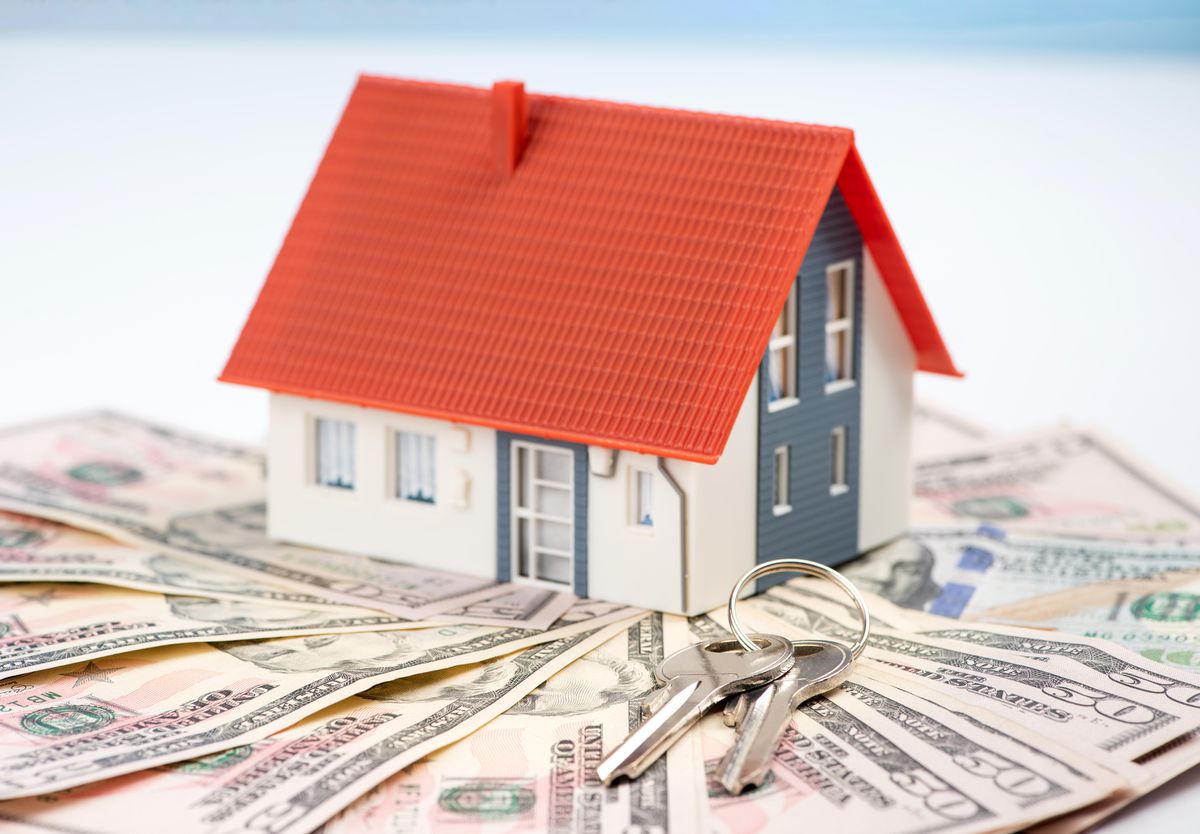
It takes a lot of money to invest in real estate. As an investor, you can turn to either conventional or alternative lending methods as it suits you best. Private financing is one of the ways you can secure an investment. Often, private financing depends on the relationship between the lender and borrower. Most often, however, private financing for real estate can be in the form of private equity funds.
The main drawback of private financing is its flexibility. It can be used to finance a variety of real estate; from buying rental property to investing in a home, or as additional financing for new real estate construction. Private lenders also usually require fewer documents and a more lenient control and approval process.
What is hard money lending?
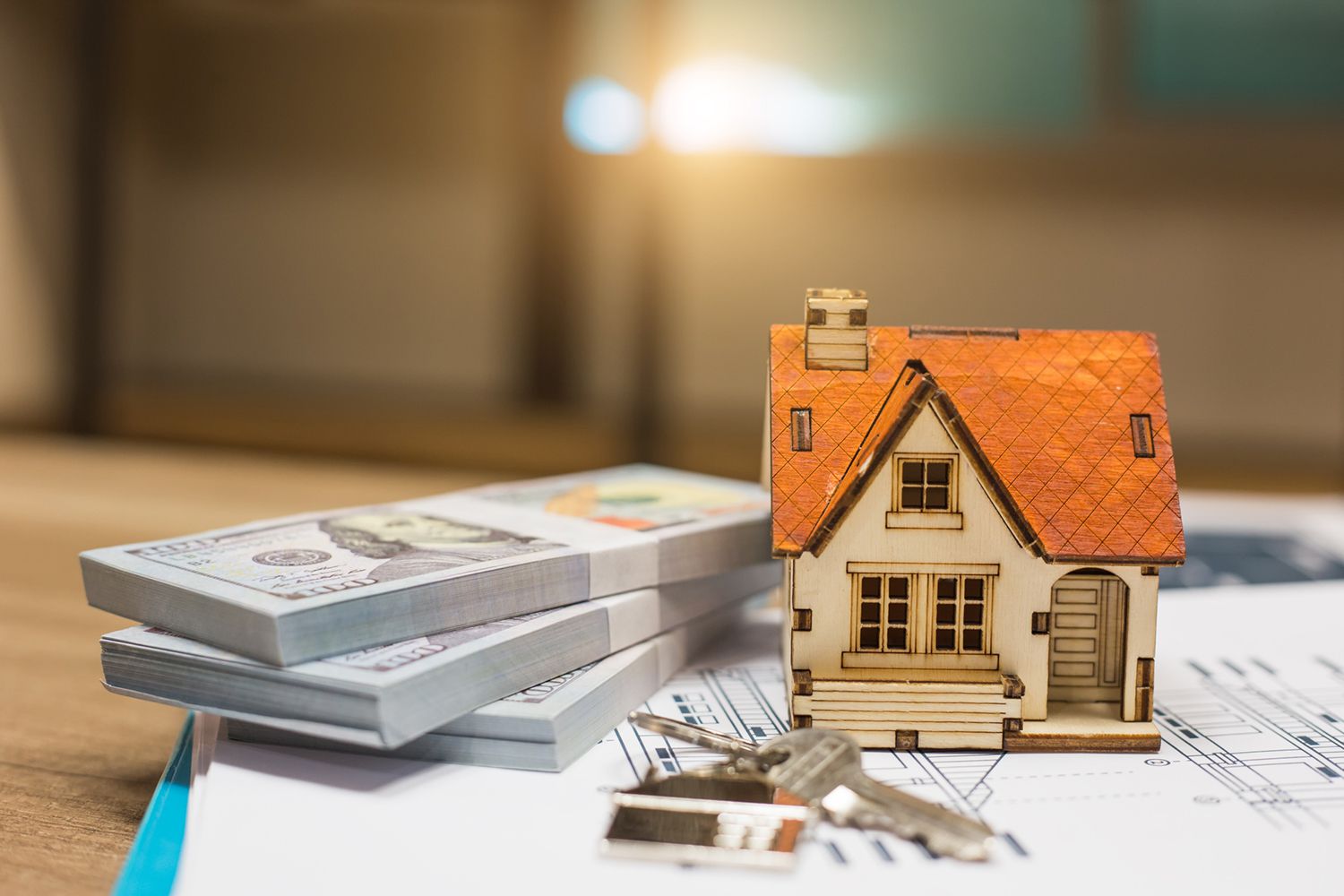
As a type of private real estate financing, hard money lending is an alternative financing plan that allows borrowers to use property as a loan guarantee. This means that the property used as collateral can dictate how much the lender can borrow, rather than alternative lenders relying on the borrower’s credit history and other circumstances.
Which leads you to the question; do you get a difficult loan? The truth is that it may not be suitable for anyone. Hard money lending works best for investor borrowers who do not have impressive credit but own valuable property. Placing property as collateral allows a borrower to access loans typically limited to those with impressive credit ratings.
Similarly, a property owner at risk of having property foreclosed may also use this unconventional real estate financial plan.
As with other private financial methods, hard money lending allows investors to participate in the real estate industry even without going through the lengthy processes of buying homes, or keeping and maintaining a property to be included in their investment portfolio.
A private lender must set criteria for qualified borrowers, and like traditional lenders, you may also be turned down for a loan.
What are the benefits and risks of private real estate financing?
Using private money to lend to a real estate borrower comes with its risks and benefits. Below is a list of a few points:
Advantages for the private loan investor
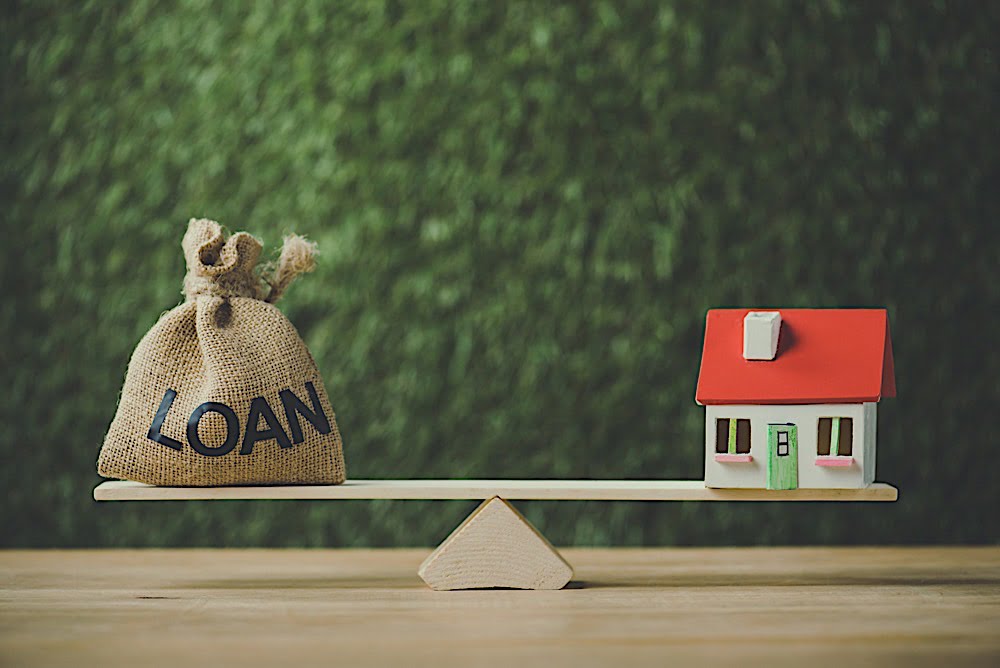
It’s a great way to earn a passive income. You don’t have to go through all the hassle of finding, buying or managing rental properties and other types of real estate. You just need to raise money to lend to the borrower and collect regular payments.
Due to the more lenient approval process, high-risk borrowers are allowed access to additional financing. This means that higher interest rates are imposed on private cash loans compared to traditional lenders. Investors can also enjoy higher returns.
- Who can become a private financial lender?
Being a private financial lender is ideal for the following categories of people:
- A real estate investor who wants to expand their portfolio
- A professional who has a high income career
- An individual who has considerable money reserves
- Emeritus seeking passive income
Generally speaking, anyone who is able to raise good money can lend their private money to borrowers. If you want to become an investor, have someone you can trust, such as a family member, as your first borrower.
However, it is not without its drawbacks. For example, the borrower you have chosen to finance may not be as financially savvy as initially thought. And as a result, you may lose instead of making money.
Additionally, the time and effort you have left to find and maintain real estate should be dedicated to research on real estate investors, and other important factors on the loan process.
Benefits for the private lender

As mentioned, private lenders generally have more lenient examination and approval processes, allowing borrowers to have better access to real estate financing. And, while alternative private financiers have their own criteria for ideal borrowers, they are nevertheless less stringent than others.
- What type of borrowers can take advantage of private financing?
Additionally, a real estate borrower who is planning or in the middle of the following projects looks more attractive to private lenders:
- House fins: If you are a borrower-investor who buys cheap houses and repairs it to resell at a higher price, you will find that private lenders save lives. Conventional lenders usually do not consider outdated properties and require too much time before they can release the money.
- Rental investment investors: Investors who need additional financing to rehabilitate rental property can also access private money. Look for a lender who wants to have a steady stream of passive income.
- Developers: These types of investors-borrowers are looking for useless land where they can build residential or commercial real estate. Because time is money in construction, these types of borrowers may not be willing to waste the lost time and opportunity waiting for monetary release. A private financier is a very tempting proposition.
Risks for the borrower

Businessman halting the domino effect inserting his hand between falling and upright wooden blocks
The only foreseeable risk to taking advantage of private financing is that you may not be able to pay due to the high interest rates. However, if you need money quickly and for emergency purposes, such as when you face foreclosure, it won’t matter much.
Do you have private funding?
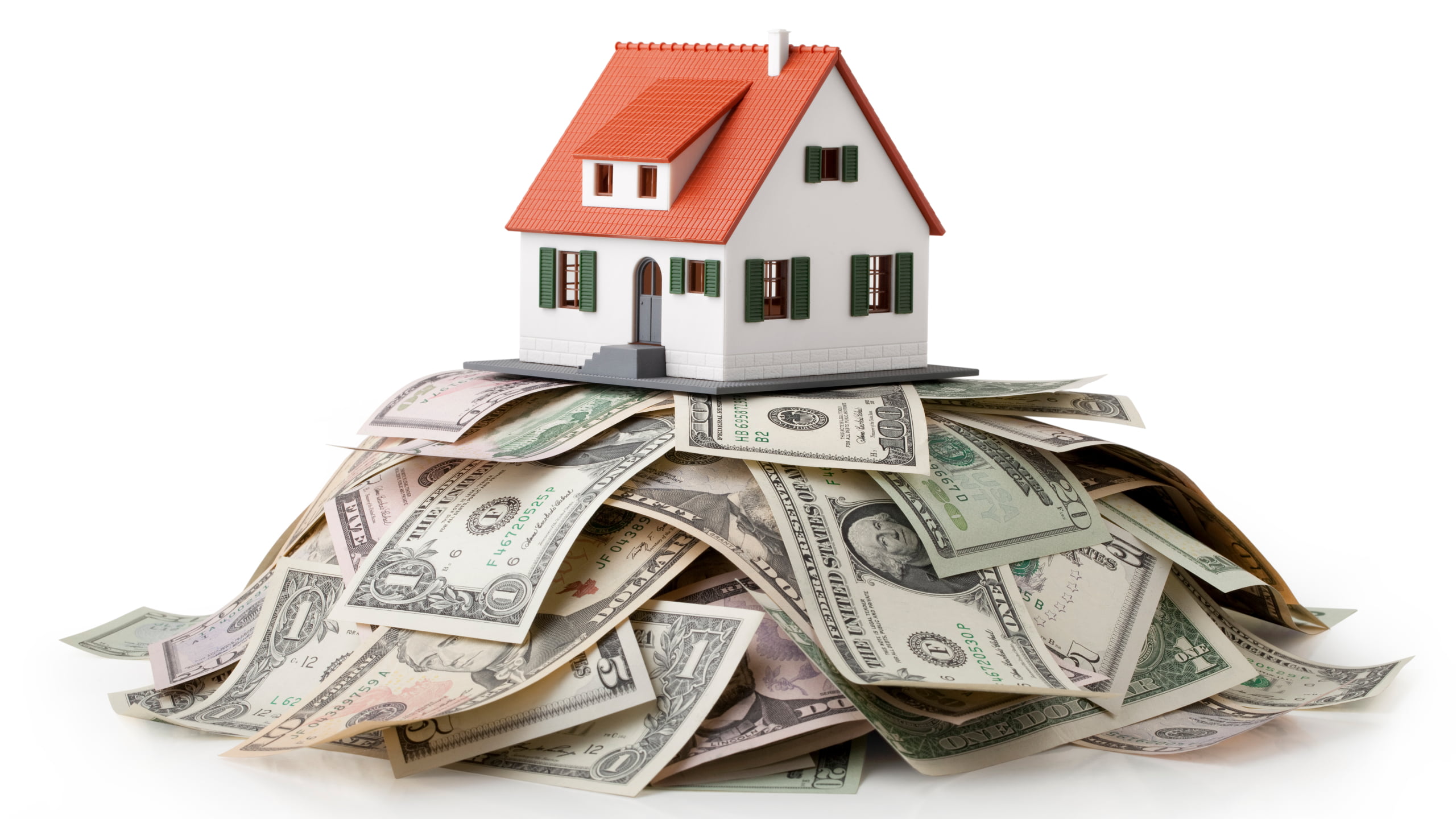
Miniature model house standing on a heap of dollar bills. Photo with clipping path.Some similar pictures from my portfolio:
Private financing is an alternative way to access finance for your real estate. The smoother and overall faster processing is tempting, but it can literally cost.
If you have a negligible credit record but need money for planned investment, quickly; consider asking lenders for private money.
For the latest updates, please stay connected to Feeta Blog – the top property blog in Pakistan.
Private Property Financing Options: Lender’s Guide
Investment In Commercial Property In Pakistan
Commercial real estate in Pakistan has different characteristics that distinguish it from a dwelling house.
It is not a simple job to invest in commercial real estate. Before investing, there are also things to look at. Business investment in Pakistan includes the choice of the site, the number of feet, how many people visit the region per day, price, price for money, and so on.
It is just as difficult to find the right property for your company, whether it is rented or purchased. Property is another aspect that needs to be targeted in the form of the company so that the investment is not lost.
That is why there are some outstanding advantages and handy tips for investing in commercial real estate in Pakistan.
Equality

By building equity in your real estate business, you will use it to further expand your business without jeopardizing your business. This helps you deal with the development of your company more flexibly.
It also gives more options when the retirement period arrives. As a company owner, you can either directly sell the practice and underlying property during the retirement period, or just sell the practice and rent a commercial property that provides a source of income.
Good Thanksgiving

Investments such as stocks do not allow for anything more than buying and selling, however, provided requirements are met and necessary permits from a local authority are secured, commercial homeowners can invest in their real estate.
A commercial property owner in Pakistan can upgrade, restructure the property outside or inside, increase rents or even modify its zoning. Inflation will bring value to current features as well. While new developments may cost more than building older properties, existing sites and the more recent local construction are still growing in value.
Tax Benefits And Maximum Returns
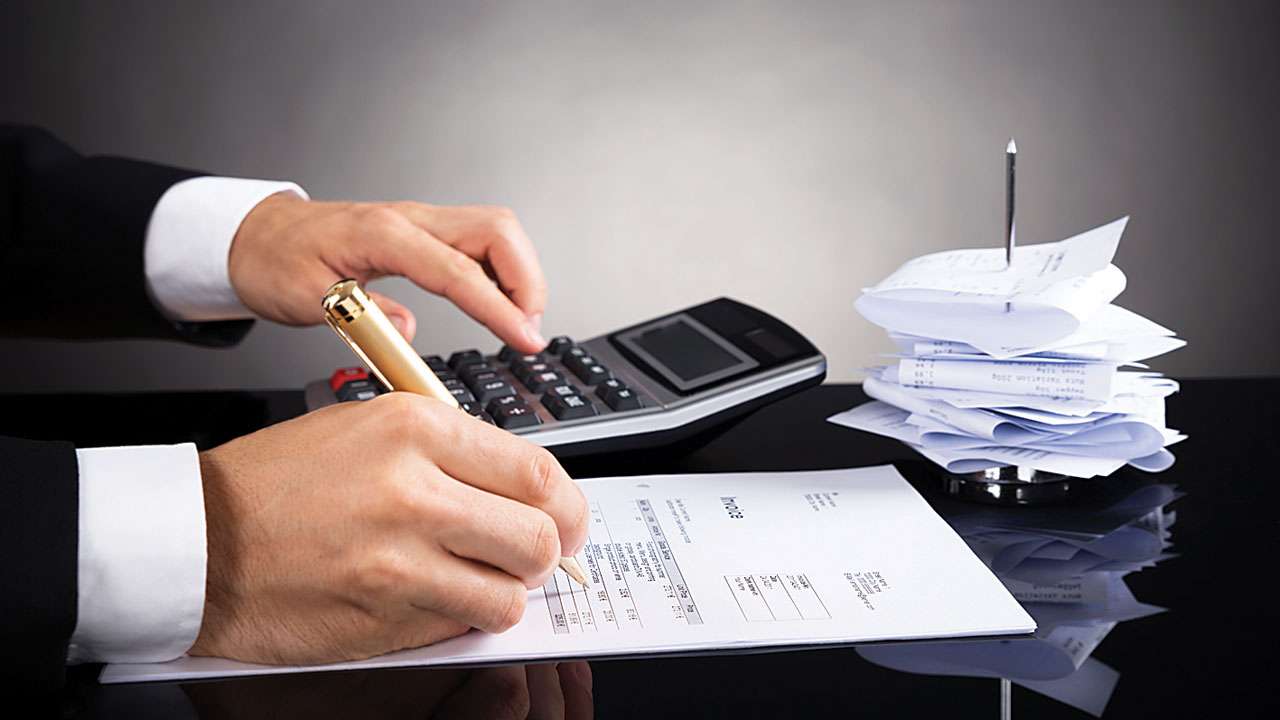
It can be a dynamic place to invest. Unfortunately, it is not only black and white as a profit generation. Taxes and other external conditions can also affect business activities. These elements can be used to your advantage when working with real estate.
The value could rise in terms of market valuation and financial value for you, but over the years the building itself would certainly decline. The direct decline indicates that the physical value of property decreases over 27.6 years. Meanwhile, after more than a decade, other features will fall apart. This loss will offset a market value gain that actually contributes to a better outcome.
A competent accountant would require these considerations. However, in most markets, such resources are not open. Here is another explanation for preferring industrial ownership over other solutions.
Cash Flow Perspectives
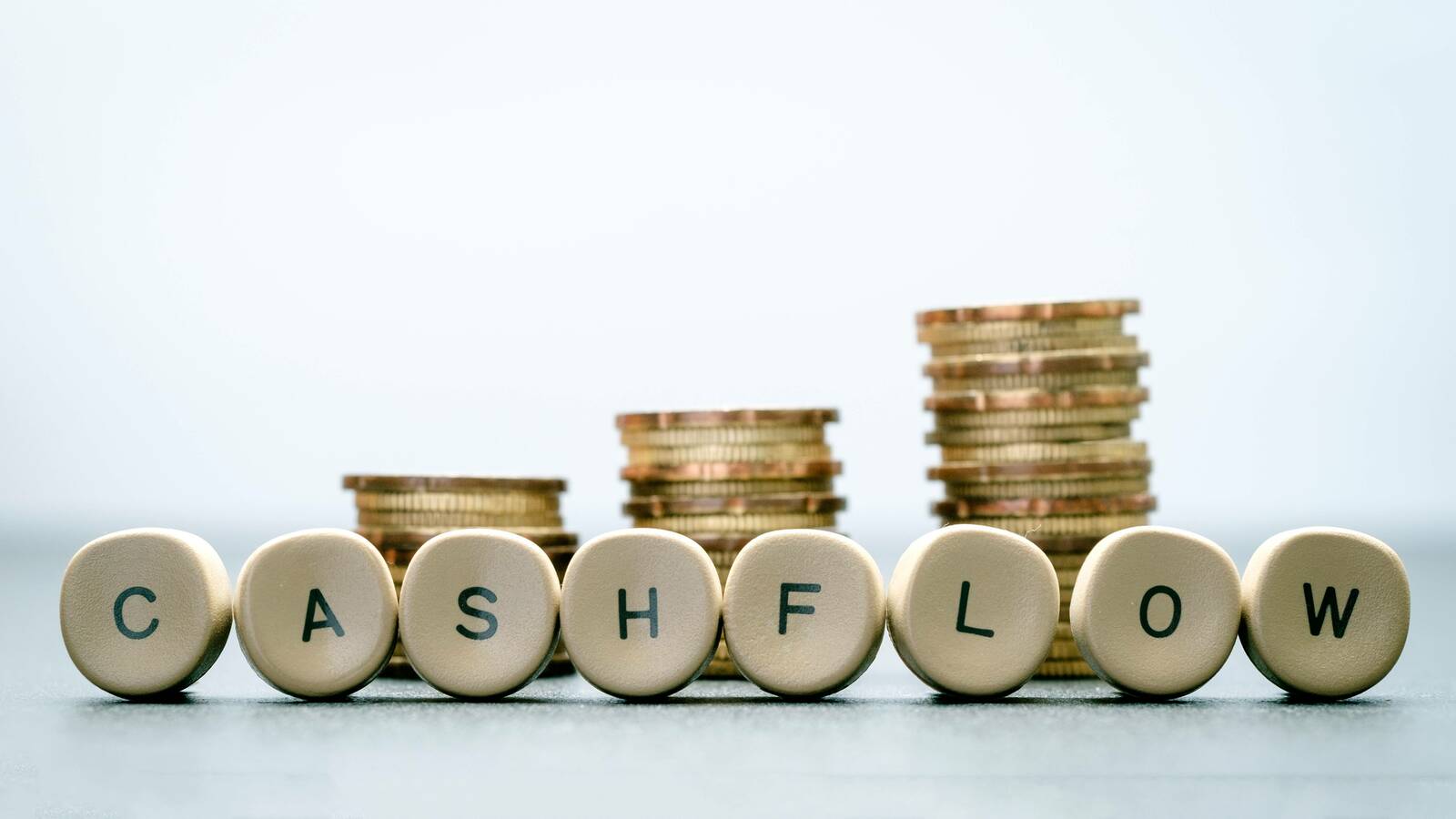
You must pay the premium for an additional cash flow of rental income if you own a commercial property with room for tenants. Tenants are willing to use their money to pay for the purchase of their land, offsetting the expense of saving.
It is important to note, however, that tenants include responsibility for property maintenance, which will diminish the presence of the main commercial properties.
Practical Tips For Investing In Commercial Real Estate In Pakistan
- One must understand the state of the market, including tariffs and the value of land, so as not to deceive man. It is extremely important to keep yourself up to date. In relation to residential and commercial property, there is a great distinction, so the characteristics of both forms must be understood.
- You need to prepare yourself so that you know when, why and how to invest in company property because there is only one factor you need to consider when investing.
- You need to remember whether the position would offer you capital growth or not, and whether the site has construction potential or not.
- The land has or does not have the most important lease option. If you do not want to use the feature yourself, you must rent it.
- The land should also include important amenities such as parking lots and electrical supplies.
For the latest updates, please stay connected to Feeta Blog – the top property blog in Pakistan.
Investment In Commercial Property In Pakistan
- Published in Business, Buying, Commercial Investment, Commercial Property, Commercial Property in Pakistan, commercial real estate, Economic Zone, ECONOMY, Market Overview, MARKETS, News, News & Updates, News and Update, Property In Pakistan, Real Estate, Real Estate Investments, real estate sector, Real Estate Trends, tax, TAX POLICY, Tax Reforms Commission (TRC), TAXATION, Trends, World Business News

